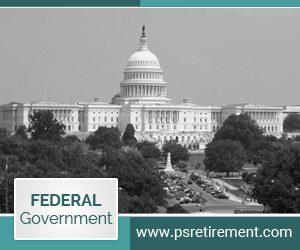Financial Planning
Philadelphia Residents Contributing Least Towards Retirement Benefits
/by AdminA new research has proven that Philadelphia residents contribute the least amount of money towards their retirement benefits. They are hence less prepared for the retirement and may struggle financially in their senior years. The major reason behind the fewer contributions is that most employers don’t provide a provision of retirement savings to the employees. Officials agree that this issue needs to be solved as soon as possible.

The Need to contribute more to Retirement Benefits
The research that says that most Philadelphia residents are less prepared for retirement as compared to the Americans living in other states was done for a city council committee. The committee aims to know how to improve retirement savings. The study was conducted and released by the Schwartz Center for Economic Policy Analysis on Wednesday. It was divulged during a hearing conducted by Council’s Committee. The hearing was on Labor and Civil Service.
The Current Situation
During the hearing, several witnesses testified to the fact that there is a retirement crisis in the U.S. The witnesses also stressed that the retirement crisis in Philadelphia is particularly troublesome. The study exposed that about 20 percent of retirees in Philadelphia are poor and about 30 percent have incomes between 100 & 200 percent of the federal poverty level.
The Reason
Anthony Webb who works at the Schwartz Center for Policy Analysis stated that the reason behind the Philadelphia’s people saving less for retirement is that the employers who offer retirement plans are very few. Even those who offer a plan don’t always participate in the plans. He also added that a high proportion of seniors are nearing closer to poverty and the people who are working right now are also at a high risk of retiring in poverty.
Need For Action
Webb also stressed on the need to offering a retirement plan to people who don’t have any yet. He stated that offering a retirement plan may not help them to have a retirement of their dreams but it will definitely help them to get away from the poverty and near poverty situation they are facing right now. He insisted that the sooner an action is taken in this regard, the higher would be the number of households that get help. When a swift action is taken, they will be able to save a bit more money towards retirement benefits.
Finding Financial Advisors for Federal Employees by Nelson Secretario
/by AdminAdvice for Federal Employees about Financial Advisors by Nelson Secretario
 Nelson Secretario – CLU, ChFC, LUTCF, ChFEBC, NSSA
Nelson Secretario – CLU, ChFC, LUTCF, ChFEBC, NSSAFederal employees have a special set of benefits that are available to them in terms of retirement income. While this can provide a nice advantage for these individuals, it can sometimes make it difficult when working with a general financial planner – especially when that planner is unfamiliar with how the federal retirement system operates.
While there are many well qualified financial professionals who can offer general retirement planning advice, when it comes to providing information that is specific to federal employees, it is therefore best to work with someone who is specifically focused in this particular area.
Where to Find an Advisor with a Focus on Federal Employees?
When searching for an advisor who has a focus on federal employees, you will want to ensure that he or she meets certain criteria. For example, in most instances, the advisor will advertise either on their website and / or other materials that they work with employees of the federal government.
In addition to having a “Fed” focus, you will also want to be sure that the advisor has an ample amount of overall experience – a minimum of ten years, as well as proper licensure. In this case, possessing a Series 7 securities license is a must. You can typically tell if a professional is securities licensed by noting whether or not they have “FINRA / SIPC” noted on their marketing materials.
Once you have found a good potential candidate for your needs, the next step is to contact the advisor and set up a meeting with them. As you will likely be working with the advisor for many years – and turning over a bulk of your life savings to them – it is essential that you are able to work together, and that you have trust in him or her as a professional.
You may even want to bring along some questions to ask the advisor, such as:
- What services to you offer?
- What are your professional qualifications?
- How are you compensated?
- Do you work alone or with a team?
- What licenses do you hold?
- Do you possess any additional professional designations?
While the process of finding the ideal financial advisor may take some time, once you have found one who is well qualified to work with you, and who you are comfortable working with, you will be able to successfully move forward towards your retirement goals.
More from Nelson Secretario
Obama Wants Better Retirement Benefits Plans for Americans
/by AdminPresident Obama and the Democrats are working hard to ensure that the common American citizens are not cheated by the financial brokers when they are seeking a good retirement benefits plan. The Republicans argue that the financial brokers already deal with so many rules and the new rules would force them to get rid of main clients and small businesses.

Obama to use Veto for Retirement Benefits
It is also being speculated that the President may use his veto power to ensure that the Labor Department rule on retirement benefits advice is passed. He may be forced to use the veto power because the U.S senate has voted against the bill. The debate on the passing of this bill stretched over the entire day on Tuesday.
The Rule
The rule that is proposed by the Obama government aims to set a fiduciary standard for financial brokers who are involved in selling retirement products. The new rule would make it mandatory for them to put clients’ best interests ahead of their own need to achieve the bottom lines. The arguments in the session mostly focused on whether the new bill would be in the best interests of the lower and middle-income workers or not.
Republicans’ Stand
The Republicans are against the bill because they think that the government is not taking into account the fact that there are already so many rules in place that need to be abided by the financial advisors. The Republicans also think that this rule would be very expensive for brokers. If this rule is imposed upon them, it may force them to let go of the small businesses that offer 401(k) plans and the Main Street clients.
Democrats’ Viewpoint
The Democrats are of the opinion that imposing this new rule is vital for ensuring that the profit-hungry financial advisers don’t exploit middle- and lower-class workers anymore. They do that currently by recommending those retirement products that are profitable for them rather than their clients.
The Statements
Johnny Isakson, a Georgia Senator stated that the rule is a solution which is seeking a problem. His fellow, Lamar Alexander, a Tennessee Senator added that the rule should be renamed as only the rich retire rule.
Democrats were not behind in making statements too. New Jersey Senator, Cory Booker said that the new rule will help people to retire with dignity. It will also ensure that people don’t worry whether their financial adviser offering advice on retirement benefits would lead to exploitation or not.
New Retirement Saving Tool that can Improve Your Retirement Benefits
/by AdminAlmost all individuals who are planning to have a comfortable retirement often seek the help of tools that can direct them. Principal, a financial planning company has made things easier for such people by recently launching Move to the Green Challenge. Any person, who is planning to retire, can participate in this challenge by using a financial wellness tool. It tells you whether you are saving enough for your retirement benefits or not.

How the Retirement Saving Tool helps in deciding the Retirement Benefits?
The retirement saving tool works by using a real-time savings graph, interactive sliders, and intuitive prompts. They will let you know how making a few simple changes can help you to have more financial security and a steady flow of retirement benefits.
The tool would also offer every user a personalized score that tells them whether they are on the right path or not. It also has red, yellow and green indicators. Everyone should aim for the green indicator as it means that you will get 70 to 85 percent of our current income after retirement.
The Previous Attempt
The company issued a statement that stated that a similar initiative was started last year and people liked it too. About one-third of people who participated last year increased the retirement plan deferral amount by 3.75% points to get 10% of pay. The statement also announced that there has been about 30% increase in the number of participants who made use of the plan and increased the deferrals since the launch of the Retirement Wellness Planner of the company.
Personalized Experience Helps
The Senior Vice President of Retirement and Income Solutions at Principal, Mr. Jerry Patterson recently stated that the idea of offering a personalized as well as interactive online experience plays a vital role in helping users understand how and where they can make better saving decisions. They are making use of the suggestions. He also added that saving more and earlier is the best thing all people can do to be well prepared for retirement.
The Benefits
People who take part in the Move to the Green Challenge would not only boost their retirement benefits, they have also got a shot at winning a few Plantronics BackBeat FIT wireless stereo headphones. If a person plans to try the challenge, it is not mandatory to have an existing retirement account with Principal.
How the retirement gap can be closed by help from small businesses
/by Matt PierceThe retirement gap has been inhabiting our country for quite some time now. There are some solutions in this regard and the multiple employer plans might help us in this regard.
 Closing the retirement gap possible?
Closing the retirement gap possible?
In this regard, there is always space for putting some background information in: It’s not news for anybody that the experts have always considered the US retirement gap to be higher than what it should be. The money that Americans have to additionally spend to secure their retirements and their post-retiring life is a lot, to say the least. The Employee benefit Research Institute has estimated that this gap is around 4 trillion dollars of American citizen money.
We all are pretty much aware that this gap isn’t going to close itself and unless we can provide a lot more access to the retirement plans it’s going to stay this way. Companies and individuals that don’t have workspace retirement plans can go on and fund IRAs for all their employees. According to a study, if a retirement plan is available to people that earn around 30 to 50 thousand dollars a year, 70 percent of the employees opt for it. Only 5 percent will still fund an IRA even if it isn’t imposed on them by their workspace.
It’s worth mentioning that there are many small and large companies that do offer proper retirement plans but there is still a shortage of them. In order to close the retirement gap once and for all, collective effort of all the small and large workspaces is required. If companies provide their employees the insight that they require then they are more than likely to spend the small amount of money in the urge of securing their future. Here’s hoping that this can happen in the coming years.
Over 40 Million Americans Regret not saving earlier for Retirement Benefits
/by Admin A recent survey done by Bankrate.com has revealed that most of the Americans live with financial regrets. They primarily regret not saving enough money for retirement benefits. The other thing they regret is not saving for emergencies. The survey also revealed that people had better financial situations, financial security, and net worth when compared to a year ago.
A recent survey done by Bankrate.com has revealed that most of the Americans live with financial regrets. They primarily regret not saving enough money for retirement benefits. The other thing they regret is not saving for emergencies. The survey also revealed that people had better financial situations, financial security, and net worth when compared to a year ago.
Retirement Benefits and Emergency Savings are Key Regrets
Most of the Americans admitted that they had financial regrets. The percentage of Americans admitting the regrets was 75%. This was revealed in a study done by Bankrate.com. The study also found out that 18% or about 42 million Americans thought they should have started saving earlier towards their retirement funds. The study also found out that about 13% Americans thought they didn’t have enough money to pay emergency expenses.
Age and Retirement Saving Regrets
The survey also uncovered the fact that the Americans who were older had more concerns with regard to not saving up early for retirement. People who were more than 30 years old felt that they should have started saving for retirement early on. About 17% of respondents who were between the ages 30 to 49 regretted it. About 24% of respondents who were within the age range of 50 to 64 had this regret too. The percentage increased to 27% when the respondents were over 64 years of age.
Expert Opinion
The Chief Financial Analyst of Bankrate.com, Greg McBride, CFA stated that most Americans dealt with the financial distress of not having enough savings.
Better Financial Situation
The good news for the Americans is that they got better at other financial factors. The number of Americans who admitted that their financial situation is better than it was one year ago is almost double the number of people admitting that their financial situation is worse. The Financial Security Index of Bankrate.com is at its 2nd-highest reading ever. It is currently 104.7.
About 31% of Americans have also confessed that their net worth is better than it was a year back and just 13% said that it has worsened. The financial security of men and women has improved considerably in the last one year too. Each posted the best readings in over 1 years’ time.
The Survey Subjects
The survey that found out all about the retirement benefits regret and the financial situation of Americans was done on more than 1,000 adults who were living in the continental United States. It was conducted by Princeton Data Source from May 5, 2016, to May 8, 2016.
Investment Fees Cutting Down on Retirement benefits of the Millennials
/by AdminThe Millennial Generation is often encouraged to invest more towards retirement benefits in order to get higher benefits when they retire. But things don’t seem to be as simple as that. A recent analysis has revealed that a lot of money invested by the millennials towards retirement savings often ends up towards investment fee.
Retirement benefits Fee too High?

The analysis of retirement investments was done by NerdWallet. The analysis revealed that if millennials pay just 1% towards the investment fee, they would end up losing more than $590,000 as it will be counted as lost returns. The figure is based on the entire course of their savings lifetime.
The Benefits and The Loss
Time seems to give a big benefit to the generation Y. They have the advantage of at least three or four decades to create their own nest egg as compared to their precursors. This time is also an enemy because the investment fees grow with time. The analysis has exposed that the impact of constantly rising investment fees can cut down the retirement benefits of a millennial by over 25%.
The Instances
The analysis was done on a subject who was a 25-year-old person depositing $10,000 in the retirement savings fund every year. The savings account already had $25,000. The subject earned an average annual return of 7%. The person planned to retire after reaching the age of 40 years. Only 1% investment fee snowballed over time as the portfolio of the subject grew.
In one scenario it was seen that a mid-cap mutual fund that had the ratio of just over 1% was to earn $1.77 million after a time span of 40 years. The ETF also grows at a rapid pace. The index-based exchange-traded fund that had the fee of 0.09 percent was to grow to $2.3 million in the span of 40 years.
Fees in Other Vital Plans
A very similar analysis has revealed that a target date fund which is commonly used in the 401(k) plans that had a 0.75% fee were to grow to $1.9 million within the time span of 40 years. A robo-advisor portfolio was to grow to $2.2 million in the same time span.
Impact on Overall Reduction
The analysis also found out that every dollar deducted in the form of investment fee would be one dollar less left to invest in the retirement benefits.
What the new fiduciary rule has in store for you
/by AdminThe Department of Labor presented a new rule this past week that will require financial advisors who are handling retirement accounts to begin acting as fiduciaries. This fiduciary rule will imply that the needs and interests of the clients, be given first priority.

What The Fiduciary Rule Means To You
There are some questions though regarding the fee structure and retirement savings that employees would like answered. Here, we try to analyze those questions:
a) If you are not a financial advisor, will your life change?
This is the first question that must pop up in minds of everyone involved. How will the new Fiduciary Rule impact me? The answer takes heed from the fact that the new rule is focused primarily on retirement savings. Having said that, any point of contact you might have with an IRA, 401(k), Thrift Savings Plan (TSP), etc. will be impacted.
b) Is your financial advisor a fiduciary?
All the financial advisors that have the following designations: Certified Financial Planner or Registered Investment Adviser, are in fact fiduciaries, by default. Depending on a percentage of your assets, they will typically charge you based on the assets you hold with their firm or possibly a set hourly or yearly fee.
The story is different however if you have an IRA at a Brokerage Firm and your major interaction is with a person who works with you as a Salesperson or who offers advice which is solely ‘Suitable’ (which is the vast majority of financial professionals) vs. that which is truly in the clients best interest, the answer can be a bit different.
c) Will money be saved?
Lastly, if you were making your deals with an advisor who works on commission the new Fiduciary Rule may end up helping you a great deal, but the new rule does not go into effect for at least a year from the writing of this article so we’ll see how much actual impact the final Rule actually has.
Receive a Passing Grade For Retirement
/by Dianna TafazoliFederal and Postal Employee Retirement Planning Report Card

Each of us should have a Retirement Planning Report Card with the expectation of doing well pretty much like when we were kids in school. If you got good grades, your parents often rewarded you with something special, sometimes even money to show the value and significance of getting good grades.
Now we have reached another milestone in our lives where once again a report card is important. The difference is if you get a good report card by planning ahead for retirement, your reward is to live in comfort and security. Proper planning allows you to retire on your own terms and take the worry out of how you are going to survive now that your income is much lower than it was as an active employee.
Your planning report card should include estimates of your federal retirement annuity income which will resemble reality the closer you get to retirement. It should also include life expectancy to help you get an idea of how long your resources need to last. Actuary charts and estimates can help you with this endeavor. Look to include your total estimated monthly retirement income and your estimated monthly expenses. Do not forget to include your Social Security benefits and other items you think relevant to giving you the best picture possible of your retirement future.
There is quite a bit of work to do to get ready for retirement, but the sooner you get started the closer you are to reaching your retirement goals.
P. S. Always Remember to Share What You Know.
Postal Employees Should View LiteBlue Related Pages
LiteBlue; Online Access to More Than Just Your USPS Earnings Statement
What Postal Employees Should Do On LiteBlue Before Retirement
Changing Your LiteBlue / PostalEase Password Through ssp.USPS.gov
eRetire for Postal Employees – Retirement Applications on LiteBlue
Living Trusts for Federal Employees
/by Dianna Tafazoli
Living trusts were generally thought of until about 20 years ago as a planning tool for the rich. That is no longer the case as these planning tools are becoming more popular with the tax advantages offered and the privacy provided. Living Trusts are generally set up by an estate attorney while you are alive. Testamentary trusts are created after death.
Features of a Living Trust
• The Living Trust involves the individual (or a couple if you are married) who secures the Trust and is designated the Grantor or the Trustor.
• The Trustee is the individual named by the Trust as the manager or the Trust’s assets and property. The Trustee and Grantor may be the same individual or individuals.
• The third party is the Beneficiary(s). The beneficiaries are the heirs that will receive the fruits of the Trust once the Grantors are deceased.
• Living Trusts are not subject to the laws and regulations of probate. Therefore your wishes can be kept completely private and away from public scrutiny.
• Since a Trust is defined as a separate legal entity, distributions to beneficiaries can be made from the Trustee without any involvement from the courts.
• The lengthy wait and cost of probate is avoided with a Living Trust.
• Distributions can be made to beneficiaries as long as the assets have been placed in the Trust.
• Once a Living Trust is established there are few limitations, if any, about what can be placed in the trust, i.e., savings accounts, stocks and bonds, real estate, life insurance, personal property. The assets are changed from your name to the name of the Trust.
• Do your homework and find out more about Living Trusts to determine if it is an estate planning tool that might interest you.
P. S. Always Remember to Share What You Know.
Recommended Articles
For Postal Employees – LiteBlue and the TSP
Federal Retirement Benefit Analysis
Is The Pension Survivor Benefit Best For You? by Todd Carmack
A Little-Known Opportunity Can Increase Your Retirement Income. by Mark Sprague
Planning To Retire In One Year
/by Dianna TafazoliWhen you get within one year of eligibility for retirement it would be prudent to:

- Confirm when you will be eligible to get a retirement benefit;
- Speak with a qualified financial professional
- Decide when you want to retire;
- Get information about other benefits to which you may also be eligible for, such as your Thrift Savings Plan (TSP) any other entitlements based on employment, for example: Social Security, pensions from private industry, and Individual Retirement Accounts (IRAs). You should have a fairly comprehensive picture of all sources of your retirement income and when each is payable;
- Tell your manager about your proposed retirement date. It would be professional protocol to give sufficient notice to allow for planning for someone to take your place.
- Attend a pre-retirement counseling seminar;
- Make an appointment with your human capital officer to review your Official Personnel Folder (OPF) to make certain all your records are complete and accurate, all service is verified, and your insurance coverage is documented;
- Make sure that the beginning and ending dates for each period of employment is properly documented for benefit computation;
- Ensure the effective dates for each promotion or within-grade increase is also properly documented during the period that will be used to compute the high-3 average salary;
- Make certain the dates of pay changes or earnings and the pay rate during employment periods when retirement deductions were not withheld from your salary are properly documented;
- Capture the tour-of-duty during any part-time employment. Also document any hours worked beyond the official tour of duty as actual hours worked.
- Document and keep a record of periods worked intermittently or “when-actually-employed”;
- Document all military service time; and
- Whenever there is a conflict about time or missing documentation, always contact your human capital officer immediately.
P. S. Always Remember to Share What You Know.
TSP ARTICLES
Thrift Savings Plan (TSP) Withdrawal Options
For Postal Employees – LiteBlue and the TSP
Federal and Postal Employees – Choosing a Financial Professional
Is All ‘Your’ TSP Money Actually Yours?
Do You Have a Federal Retirement Individual Action Plan
/by Dianna Tafazoli
Building your Federal Retirement Individual Action Plan (IAP) starts first with building your Financial Plan – the key element to your retirement future. In order to achieve our collective goal of retiring with comfort and security, we must underscore the inescapable urgency of identifying and setting goals. Without setting SMART goals we cannot develop a workable financial plan, a sensible budget or an Individual Action Plan (IAP).
Federal Employee Retirement Priorities
We all philosophically know the difference between ‘WANT’ and ‘NEED’. Prioritizing need over want is the age old challenge. There is nothing wrong with ‘wants’. As a matter of fact, wants often push us to succeeding. The challenge is being able to know the difference between want and need and utilizing that knowledge to choose options and decision-making strategies that are critical to the SMART goals we set in our lives.
The Federal Employee Financial Plan
One of the most important components of financial planning is the decision-making process. As we think about retirement, it is imperative that we make choices that maximize our capacity to accomplish SMART goals with perhaps a different level of income. Decision-making, like goal setting may need to be modified depending on changing circumstances and other factors. However, there is a process of effective decision-making used by most of us without ever consciously thinking about it. We are constantly setting goals consciously or subconsciously. We must analyze data when determining what we can afford and what we cannot. We create plans to turn thoughts into action, the implementation process. Lastly, we monitor how things are working which often calls for modifying the original plan we put in place. Are you ready to put your retirement plan in action.
P. S. Always Remember to Share What You Know.
Recommended Articles
For Postal Employees – LiteBlue and the TSP
Federal Retirement Benefit Analysis
Thrift Savings Plan (TSP) Withdrawal Options
Federal and Postal Employees – Choosing a Financial Professional
Is All ‘Your’ TSP Money Actually Yours?
Federal Retirement Benefit Analysis
Statements to Answer and Get You Thinking
/by Dianna Tafazoli
Sometime we need a little nudge, some motivation to get our engines pointed towards painting a picture of our retirement future. The following statements can assist in setting the parameters for both our plan and individual action plan.
- I have a definite strategy to SAVE. ___
- I have clearly written down all of my financial goals for retirement. ___
- I have a spending plan for all sources of income. ___
- I have a plan for reaching my goals for retirement. ___
- I always review my goals before spending. ___
- I have clear plans as to how I will spend any unobligated funds before I spend impulsively. ___
- I have a budget that I monitor now and will continue monitoring my budget in the future. ____
- I know exactly how much money I can spend on clothing monthly and yearly. ____
- I know how much money I can spend for eating out and entertainment. ____
- I plan ahead for times of big expenses, i.e., replacing the furnace or AC unit, purchasing a new car, major car repairs, home repairs, etc. ____
- I have a plan in place for unexpected expenses. ____
- When I must make a major purchase, I do comparison shopping. I test the market. ____
- All of my purchases are part of my plan for reaching my retirement goals. _____
- I set aside some money to spend as I please, only after paying myself first (PYF). ____
- I have emergency funds set aside equal to at least six months of living expenses. ____
- I have begun a sensible debt reduction plan. ____
- I pay off the entire monthly balance due on my credit cards to avoid paying interest charges. ____
- I know the difference wants and needs and I prioritize needs over wants. ____
- I know the rate of interest I am receiving on all savings accounts. ____
- I follow and monitor the rate of return on my investments. ____
- I understand what my investments mean and the risk associated with them. ___
- I belong to a credit union to reduce transaction costs in conducting my financial affairs. ____
- I determine the amount of money I can spend on a car and secure financial for that amount before selecting a car. ____
Give yourself one point for each item you have already taken action on. Add up your score and see how far you need to go to put your plan of action in motion.
P. S. Always Remember to Share What You Know.
Recommended Articles
For Postal Employees – LiteBlue and the TSP
Federal Retirement Benefit Analysis
Is The Pension Survivor Benefit Best For You? by Todd Carmack
A Little-Known Opportunity Can Increase Your Retirement Income. by Mark Sprague
Federal Employees and Financial Planning
/by Dianna TafazoliDefinition: A financial plan is a thought process based on what each person considers important and necessary in their life.

A financial plan helps to identify what we want, how to get it and how to keep it. The financial plan drives the entire process and is the determing factor as to whether you successfully reach your retirements goals. In devising a financial plan, we must make choices in order to maximize our ability to accomplish our goals with varied resources in our retirement years. We measure our values, those beliefs or ideas we consider important or desirable. Our values have a lot of influence on our goals, choices and decision-making. As we grow older our values will most likely change.
When we make decisions, circumstances and events in our lives often cause us to make other decisions based on decisions we have already made. In essence, one decision can bring about the need to make additional decisions. In the economic world, those decisions are called “Satellite” decisions.
In making decisions we often have to make trade-offs. We give up something now to get something better tomorrow that will ultimately benefit us in the future. We save now so that our retirement years will be spent in comfort and security. The trade-off is defined as an “Opportunity Cost.” Planning for our retirement future requires a basic lesson in finance and economics as demonstrated by some of the terms we will use in our discussion.
There are 3 kinds of people when it comes to spending money. There are those who live from paycheck to paycheck. There are those who never have enough money and then there are those who absolutely ‘Get it.’
The people, who absolutely get it, didn’t just by some click of a pair of ruby slippers suddenly end up in OZ, a stratosphere off-limits to the rest of us; they had a financial plan and they followed the plan. They understand that goals must be Specific, Measurable, Attainable, Realistic and Time related – the Goals must be SMART.
The folks that get it also understand the ‘Reality’ of resources in that they are limited or different at best, specifically in retirement. They exercise self-control and “Restraint’. They are not impulse spenders. They also know the benefit of accepting ‘Responsibility’ in financial planning rather than taking on the consequences of not having a plan.
Equally as important, people who get it, know intimately the value of saving for a rainy day. They spend within or below their means and are not reluctant to share with others. Renowned financier and philanthropist, Warren Buffet, reputed to be one of the richest men in the world once stated on an interview with Larry King, former CNN TV personality, “I don’t need to spend a lot of money on clothes or houses or that kind of stuff, a comfortable pair of jeans and T-shirt is ok.” Eccentric he maybe, but he gets it because he has a plan that evolves as circumstances in his life change.
Building your financial plan must incorporate a high degree of flexibility because changes in your life’s circumstances are inevitable.
P. S. Always Remember to Share What You Know.
Recommended Articles
For Postal Employees – LiteBlue and the TSP
Federal Retirement Benefit Analysis
Is The Pension Survivor Benefit Best For You? by Todd Carmack
A Little-Known Opportunity Can Increase Your Retirement Income. by Mark Sprague
Financial Planning – You Know More Than You Think
/by Dianna Tafazoli Many individuals shy away from talking about financial planning because they think it is too far above their heads. Not so. Families are engaged in financial planning daily. Mothers and Fathers determine what they can spend on groceries, housing, education, transportation, health care and a number of other aspects important to running our lives. The fear sets in when we are asked to formalize our plans. Here are some hints to help you get started.
Many individuals shy away from talking about financial planning because they think it is too far above their heads. Not so. Families are engaged in financial planning daily. Mothers and Fathers determine what they can spend on groceries, housing, education, transportation, health care and a number of other aspects important to running our lives. The fear sets in when we are asked to formalize our plans. Here are some hints to help you get started.
- Inquiring about what we want and need to know requires an examination of what you already know about financial planning and money management. We each have our own frame of reference about money, spending, saving and just a general attitude about money. We learn about money and spending habits from a number of places and people in our lives. Should we spend a lot of time thinking about money and planning, will it simply take care of itself, is it a skill that we need?
- Gathering and assembling the information we need is where we utilize our investigative and discovery skills. We are able to mesh newly discovered information with information we already know; and build upon our skills to become more educated and informed about managing money into retirement; and ensuring that it lasts as long as we last.
- Processing the Information takes us from theory to reality via integrating and making sense of the two previous concepts by either utilizing or implementing the information.
- Studying and Determining the Right Fit is part of the individual customization of the learning concept. How you plan and manage for your retirement future is not a cookie-cutter phenomenon, but a challenge and an opportunity unique to your own circumstances, needs, values and choices. We will move reciprocally a number of times between all of the steps before moving on to “Applying what we have learned.”
- Applying what we have learned is making it happen, making it real and making it work to shape your best possible Financial and Individual Action Plan for Retirement that provides milestones that are flexible, stable, consistent and doable over the long-term.
You see you have already been involved in financial planning and managing your money. The question is have you planned and managed your resources well enough to live your vision in retirement. Being challenged by questions right before your eyes can be a great motivator to call your attention to things you need to do to secure your retirement future.
P. S. Always Remember to Share What You Know.
Recommended Articles
For Postal Employees – LiteBlue and the TSP
Federal Retirement Benefit Analysis
Is The Pension Survivor Benefit Best For You? by Todd Carmack
A Little-Known Opportunity Can Increase Your Retirement Income. by Mark Sprague
What is the Difference Between a Broker and an RIA?
/by Dianna Tafazoli This question came into my mailbox. The writer said he asked his HR Director what was the difference between the two and she said she didn’t know. She gave him the right answer. HR Directors are usually not Financial Advisors and typically are not licensed (and therefore shouldn’t) offer investment or financial advice. They know retirement and may have a fairly sound knowledge about certain financial terms and instruments because of their knowledge of benefits. However, I find absolutely nothing unusual about the HR Director’s answer. She probably looked at the writer very strangely and wondered why he was asking her such a questions. We are going to take a shot at answering this question because of our financial literacy educational platform.
This question came into my mailbox. The writer said he asked his HR Director what was the difference between the two and she said she didn’t know. She gave him the right answer. HR Directors are usually not Financial Advisors and typically are not licensed (and therefore shouldn’t) offer investment or financial advice. They know retirement and may have a fairly sound knowledge about certain financial terms and instruments because of their knowledge of benefits. However, I find absolutely nothing unusual about the HR Director’s answer. She probably looked at the writer very strangely and wondered why he was asking her such a questions. We are going to take a shot at answering this question because of our financial literacy educational platform.
The difference between a broker and a registered investment advisor (RIA) has a lot to do with how that professional’s business is structured. This might sound a little unkind, but it is what I believe constitutes the most significant difference between the two. The broker is generally a representative who works for a brokerage firm selling securities. Brokers are not really financial advisors (regardless of the name they might call themselves), but are selling a product. The selling of products generally carries a commission, sort of like in the movie – The Wolf of Wall Street. The brokers, not to say they are not good people, but they truly have a motive to sell a product. The question becomes – Does their interest come before yours? Just a question to think about.
A Registered Investment Advisor (RIA) is required by law to not only give you suitable advice or recommendations, but must act with a tremendous amount of fiduciary responsibility. Both are regulated by the Securities Exchange Act of 1934 but to different degrees or operating parameters. RIAs are required to put the client’s interest first and not their own. In short – if you have a choice, a RIA may be your better option.
The most important requirement is making sure you are educated about what direction you want to take when it comes to financial planning and managing and transferring your wealth.
P. S. Always Remember to Share What You Know.
Determining If A Trust Is Right For You
/by Dianna Tafazoli It seems to be the general concensus that a Last Will and Testament is an essential part of a good estate plan but Living Trusts are not as widely used nor understood. Although many may think that probate is a negative of the Last Will and Testament, a great many individuals remain comfortable with it. There are a number of ways to pass your wealth onto family members. But whatever method or tool you choose, taking action is pivotal. Don’t spend so much time thinking about what to do that you simply do nothing.
It seems to be the general concensus that a Last Will and Testament is an essential part of a good estate plan but Living Trusts are not as widely used nor understood. Although many may think that probate is a negative of the Last Will and Testament, a great many individuals remain comfortable with it. There are a number of ways to pass your wealth onto family members. But whatever method or tool you choose, taking action is pivotal. Don’t spend so much time thinking about what to do that you simply do nothing.
Planning a strategy to pass on your wealth to family members, charities or friends must be a highly personal and individual decision. It is good to consult with individuals skilled in a number of arenas concerning making plans to secure the integrity of your estate. In the final analysis, you must make the decision as to how your assets will be handled. This requires researching and educating yourself so that you can participate intelligently in the conversation and oftentimes requires working with a knowledgeable financial professional.
It is never a good idea to be in a position to listen and listen without the benefit of having some knowledge under your belt. You don’t have to be an expert, but you surely need to have enough information so you can determine which direction you want to take. Summarily, you don’t want anyone making critically important decisions for you. You want to make those decisions yourself.
More and more individuals are turning to Trusts in managing the transfer of their wealth to their loved-ones. As the grantor or the trustor of the trust, you may make changes, additions or transfer assets. You may even terminate the trust altogether. A trust can be changed and so can a will. Both instruments require being informed. By comparing Wills and Trusts side-by-side and of course having a decision with someone you trust will help you decide if a Trust is right for you.
P. S. Always Remember to Share What You Know.
Recommended Articles
For Postal Employees – LiteBlue and the TSP
Federal Retirement Benefit Analysis
Is The Pension Survivor Benefit Best For You? by Todd Carmack
A Little-Known Opportunity Can Increase Your Retirement Income. by Mark Sprague
How To Choose a Financial Professional to Handle Your Affairs
/by Dianna Tafazoli There is no fool-proof way of finding the right professional to help you handle your financial affairs. Retirement planning which includes estate planning can get very complicated. Most of us do our own retirement planning, but if you prefer to seek the advice and counsel of a financial professional consider the following tips:
There is no fool-proof way of finding the right professional to help you handle your financial affairs. Retirement planning which includes estate planning can get very complicated. Most of us do our own retirement planning, but if you prefer to seek the advice and counsel of a financial professional consider the following tips:
Financial Advisors and Federal Employees
Seek a financial planner who has demonstrated skills in their field of expertise. Look for advisors who have been published or interviewed on topics that relate to your concerns.
If you find a financial planner via a company find out how they are compensated.
Use the Financial Planning Association’s online interview tool to assist you in asking the right questions.
If you are going to use an attorney for your estate planning needs choose one that has at least 10 years of experience in estate planning. This is a very complex field with different probate and wealth laws in every state. The attorney you choose must be keenly aware of these laws and how they apply to your personal circumstances.
Make sure that the attorney you choose is licensed to practice law in your state of legal residence.
Ask for references, preferably current and past clients, before you begin any legal work.
Check organizations and licensing boards for background information. Also check with continuing education associations focused on estate attorneys. These associations generally draw well qualified attorneys to their ranks.
Evaluate the listening skills and communication style of any advisor or attorney you are considering. If the professional is short and impatient and does all the talking without giving you the opportunity to chat and ask questions, no matter how talented, it is not a good idea to choose that person. Keep on searching.
Always do your homework when you are looking to hire someone to take care of what could be the most important business you will ever have.
P. S. Always Remember to Share What You Know.
Recommended Articles
Understanding The Thrift Savings Plan, By Todd Carmack
Social Security for FERS Employees by Todd Carmack
A Little-Know Opportunity Can Increase Your Retirement Income – By Mark Sprague
Financial Planning for Federal Employees – When Is Too Much
/by Dianna TafazoliFinancial Planning for Federal Employees

As a Federal Employee, when it comes to financial planning, can you actually do too much? Probably not, but I do know that you can do too little planning for the future. I often write articles based on questions asked in my classes or from individuals and friends. Each time I get a question from a Federal Employee it fuels me to share, because obviously I didn’t think how important the information was prior to the question being asked. That is the wonderful thing about communication, you always get a burst of sunshine because you learned something new, often valuable and something somebody else just might need to know. The acquisition of knowledge and information is to be shared with the masses otherwise it is futile.
I am going to ask you some of the same financial planning questions I was asked by a federal employee I recently met. Think about them and see if they might give you food for thought or motivate you to make certain you have taken care of some basic, but important business for you and your family.
What if I die and my spouse is only left with her Social Security check, how will she survive without what I brought to the table?
I remarried a few years back and after my divorce I did not see a need to elect a survivor benefit for my annuity. I have not made provisions for survivor benefits for my current wife. Is it too late for me to protect her now?
Our expenses will remain the same if either one of us passes away. How can we protect each us from facing financial difficulty because one source of income will no longer be there?
I have a federal life insurance policy and my children are the beneficiaries, but living on a fixed income it is difficult for me to keep up the payments. Would it be insensitive of me to ask the children to take over the premiums? Can I find a less expensive policy?
I have a TSP with a pretty substantial balance. What is the best way to make TSP withdrawals?
I keep my important papers in a special place. I haven’t told anybody in my family where my important papers are. When should I tell my family members about my important papers?
When it comes to financial planning and federal employees – there is no such thing as too much.
P. S. Always Remember to Share What You Know.
Spending Log
/by Dianna TafazoliSpending Log
 Most of us are not that meticulous when it comes to tracking every cent we spend or keeping a ‘spending log.’ Because we are not necessarily spending chunks of money, we think it does not matter. Most of us would be surprised about how much money we spend and how we spend it. Keeping a spending log on a temporary basis or a permanent basis gives us a snap shot view of our spending habits and helps redirect how we manage our money.
Most of us are not that meticulous when it comes to tracking every cent we spend or keeping a ‘spending log.’ Because we are not necessarily spending chunks of money, we think it does not matter. Most of us would be surprised about how much money we spend and how we spend it. Keeping a spending log on a temporary basis or a permanent basis gives us a snap shot view of our spending habits and helps redirect how we manage our money.
As Federal and Postal employees prepare to transition into retirement, adopting some skills that will help salvage and build financial stability for a retirement that is estimated to last 30 years or more is a must do on pre-retirees to-do-list.
From the time you started to read this post until the end, give a good guestimate of how much money you spend in a week, then in a month. At the end of your mental exercise, actually write down how you spend your money, total the amount and compare the actual to what you guessed you were spending.
We are often heard saying – I don’t have enough money. That statement might actually be true. If you are working on a salary chances are you can’t change the amount of income you are earning, but you can control how you are spending your earnings. A gentleman I provide coaching services to embarked upon this exercise to determine if he could revamp his finances.
I loved his choice of words – REVAMP his finances. Each day for lunch he drives to the local supermarket and uses the salad bar. He spends about $4.00 a day for lunch, approximately $80.00 a month plus taxes and whatever else he adds to that total during the course of a day. We will say that he spends $100.00 a month on lunch and probably $20.00 a month to drive from his office to the market each day. We are now up to $120.00 for the month and for taxes and other miscellaneous spending, we will add another $20.00, totaling $140.00 spent on lunch for the month.
By most estimates, his spending is low. The average worker spends much more on lunch than our example shows. But even with spending $140 a month on lunch, some changes could be made to REVAMP his spending. He always talks about not having enough money. We came up with a way to make some adjustments. He would include in his grocery list, the items he prefers from the salad bar. He would make his own lunch and eat in the beautiful park next door to his office weather permitting. He could save on gas and not worry about rushing back to the office when the lines are long at the grocery store.
When he began to analyze what he was spending, it turned out that by carefully watching his spending habits and keeping a daily spending log, he found an extra $200 a month he could put away in savings. It didn’t happen by osmosis. It happened by tracking his spending habits and finding the money within his own resources by REVAMPING his finances. Sometimes when there is not enough money it really means that we need to take a look at how we are spending the money we have.
P. S. Always Remember to Share What You Know.
In addition to working on your spending – make sure you Thrift Savings Account is being maximized.






